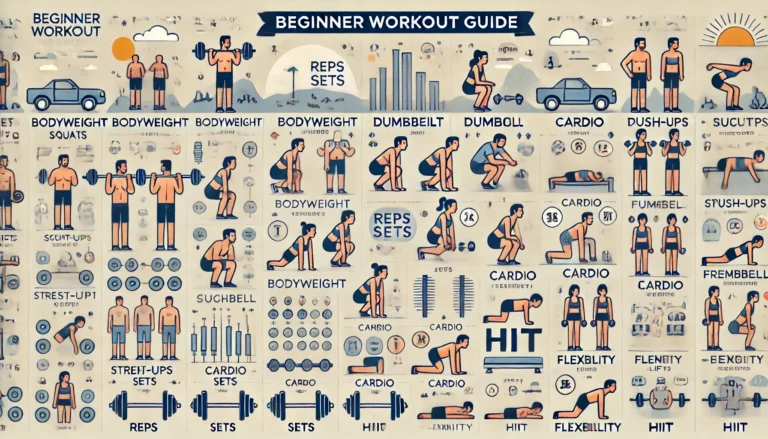
Carbohydrates often get a bad reputation when it comes to weight loss and fat reduction. In the world of dieting, carbs are frequently painted as the enemy, with many people swearing off bread, pasta, and grains in hopes of shedding pounds. However, the truth about carbs is more complex than the “good versus bad” narrative.
What Are Carbohydrates?
Carbohydrates, or “carbs,” are one of the three macronutrients that provide energy to your body, alongside fats and proteins. They come in two main forms: simple carbohydrates and complex carbohydrates. Both types are broken down into glucose (sugar), which your body uses for energy.
- Simple carbohydrates are sugars found in foods like fruits, vegetables, milk, and processed sweets. They are digested quickly and provide a rapid energy boost.
- Complex carbohydrates are found in whole grains, legumes, and starchy vegetables. These carbs take longer to digest, providing a more gradual and sustained energy release.
While all carbs break down into glucose, the type and quality of the carbohydrate matter significantly for fat loss and overall health.
Carbs and Weight Gain: The Common Misconception
One of the most common misconceptions about carbs is that they are inherently fattening. This idea has led to the rise of low-carb diets like keto, which have gained popularity for their promise of quick weight loss.
But are carbs really to blame for weight gain? The simple answer is no not all carbs are created equal, and not all carbs will lead to fat accumulation. What truly causes weight gain is consuming more calories than your body needs, regardless of whether those calories come from carbs, fats, or proteins. In fact, healthy carbohydrates can play a vital role in maintaining energy levels, enhancing workouts, and even promoting fat loss when consumed in the right way.
How Carbs Can Help With Fat Loss
Contrary to popular belief, carbs can actually help you lose fat when you choose the right kinds and consume them in moderation. Here’s how carbs can contribute to your fat-loss goals:
Carbs Provide Essential Energy for Exercise
One of the most important reasons to include carbohydrates in your diet is their role in providing energy. When you engage in physical activity, especially intense workouts like weight lifting or high-intensity interval training (HIIT), your body needs glucose for fuel. Depleting your body of carbs can leave you feeling fatigued, reducing your workout performance and ultimately slowing down your fat-loss progress.
Eating the right kinds of carbs before and after a workout can enhance your performance and recovery. Complex carbs like whole grains, oats, and sweet potatoes provide a steady stream of energy without spiking your blood sugar, making them ideal for those looking to maintain muscle mass while losing fat.
Carbs Support a Balanced Diet
The key to sustainable fat loss is maintaining a balanced diet. Carbohydrates are an essential part of that equation, providing fiber, vitamins, and minerals that your body needs to function optimally. Fiber, found in complex carbs like whole grains, legumes, and vegetables, helps keep you full for longer, preventing overeating and reducing cravings.
Fiber also supports digestive health, regulates blood sugar levels, and keeps your metabolism functioning smoothly all of which are important for fat loss. By incorporating high-fiber carbs into your meals, you can enjoy a well-rounded diet that supports your weight loss efforts.
The Role of Insulin and Carbohydrate Timing
Carbohydrates have a direct effect on insulin, a hormone that regulates blood sugar levels. When you consume carbs, your body releases insulin to help transport glucose from your bloodstream into your cells for energy. While insulin is necessary for energy production, chronically elevated insulin levels can lead to fat storage.
However, this doesn’t mean you should avoid carbs altogether. By focusing on the timing and quality of your carbohydrate intake, you can keep insulin levels stable and support fat loss. For instance, consuming most of your carbs around your workouts can help your body use glucose more efficiently, while limiting carbs late at night can prevent unnecessary fat storage.
Carbs to Include for Fat Loss
Not all carbs are created equal when it comes to fat loss. The key is to focus on whole, unprocessed carbohydrates that are rich in fiber, vitamins, and minerals. Here are some carbs you should include in your diet if you’re aiming to lose fat:
- Whole grains: Brown rice, quinoa, barley, and oats provide complex carbs, fiber, and essential nutrients.
- Legumes: Lentils, beans, and chickpeas are excellent sources of fiber and plant-based protein.
- Vegetables: Leafy greens, broccoli, cauliflower, and sweet potatoes offer both simple and complex carbohydrates, along with high amounts of vitamins and minerals.
- Fruits: While fruits contain natural sugars, they also provide fiber, which slows down sugar absorption and helps with satiety.
These carb sources are nutrient-dense and can keep you feeling full while providing sustained energy for your daily activities and workouts. They are far superior to processed carbs like sugary cereals, pastries, and white bread, which can cause spikes in blood sugar and lead to fat storage.
The Bottom Line: Carbs Are Not Your Enemy
When it comes to fat loss, the notion that “carbs are bad” is a myth. The key to success is choosing high-quality carbs and consuming them in the right amounts to support your body’s needs. Instead of eliminating carbs from your diet, focus on incorporating whole, nutrient-dense options that provide lasting energy, improve satiety, and support overall health.
By finding the right balance of carbs, protein, and fats in your diet, you can achieve your fat-loss goals without depriving yourself of essential nutrients. And, if you’re looking for an additional edge in your fat-loss journey, some people consider safe supplements like Clenbuterol For Sale Australia to enhance results, though it’s always important to consult with a healthcare professional before adding any supplements to your routine.






